Our organisational culture? Differences are okay!
How we defined and safeguarded our unique culture
- Article
- Our approach
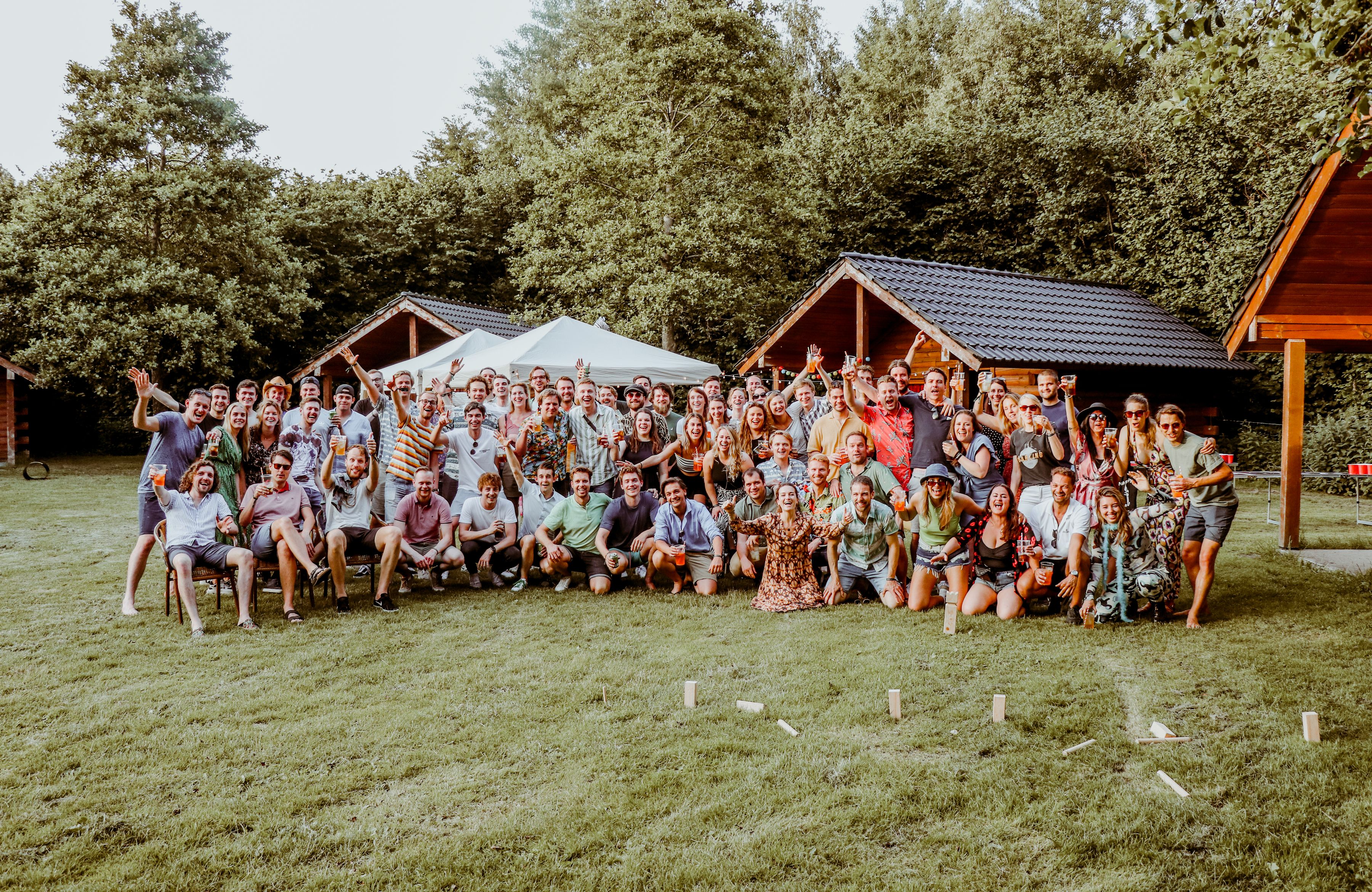
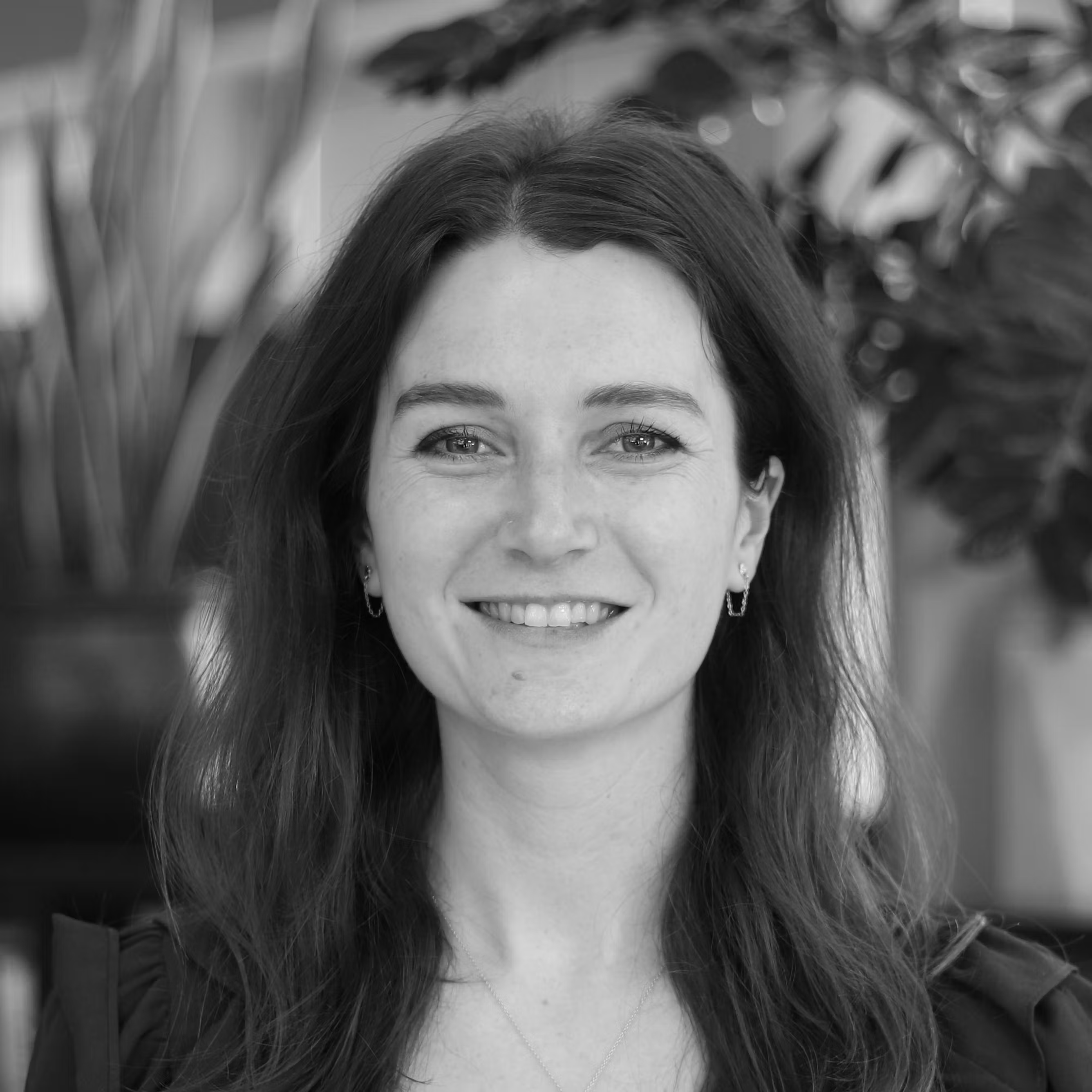
Digital Power is growing fast: our team quadrupled between 2016 and 2020. We have transformed from a small, unknown player into a mature data partner for many Dutch companies. Our team feels like a family where every member would grant each other the world if they could. But why is that, and more importantly, how do we maintain this as we continue to grow?
Led by agency Flock, our entire team worked together for months in 2020 to define our culture. The target? Capturing our culture in a tangible 'something' and making it visual & accessible to everyone inside and outside our organisation. Find out how we approached this.
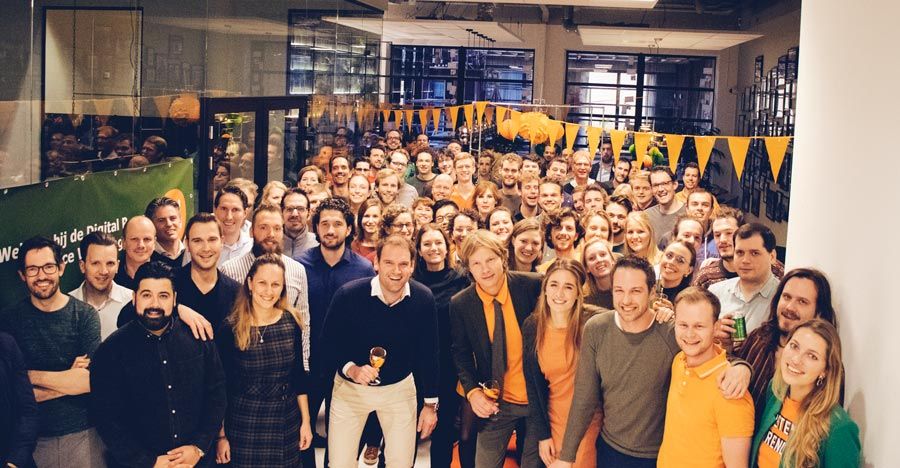
Four things you should know about our culture
1. A changing proposition led to changes in team composition
As an organisation, we move along with the developments in the market. That's why we changed our proposition. We stopped with Digital Marketing consultancy, and, in addition to Data Analytics and Customer Experience, we specialised in Technical Web Analytics, Data Science and Data Engineering. This increased the diversity within our team: for example, a Data Engineer is often a different type of person than a CX person.
Challenge: how do we maintain the 'family feeling' within our team when there are so many different types of people?
2. We have grown rapidly in recent years through acquisitions
We took over Adversitement and, shortly after, Maneros at the end of 2019, gaining dozens of colleagues in one go. A larger team meant more formal processes, more effort to get to know everyone well and more logistical challenges to physically get the entire team together on a regular basis.
Challenge: how do we ensure that we do not become too 'corporate' but remain ourselves as we grow?
3. Our team network across the country has increased
The people who previously worked for Adversitement and Maneros mainly live in the south of the country. As a result, the softly-pronounced 'g' (people of the south) is heard in the office more often and carnival has become a theme. In addition, our new colleagues are in a different phase of life: they already have children, while most of the 'Randstad' team has not yet reached that stage. To offer everyone a pleasant workplace within a reasonable travelling distance, we opened a second location in Den Bosch.
Challenge: how do we ensure that everyone feels part of our team and avoid creating a 'camp North' and 'camp South'?
4. The feedback we receive from customers is positive
Increasingly, we receive positive feedback from our customers about our people:
- "Your colleagues are so nice and uncomplicated. " – after a customer journey mapping session with residential investor Vesteda;
- "Nice guy by the way! Again typical DiP DNA! " – after a Business Manager linked one of his contacts at KLM to one of our Data Analysts for a specific issue;
- "If it works out, I'd rather leave the assignment to you. Bureau X always sings their own praises and you guys are alsways so wonderfully pragmatic. " – when a client working with several agencies wanted to start a new data project.
Opportunity: how do we translate this feeling into something tangible and physical so that we can use it for our business operations and explain it to potential colleagues, customers and partners?
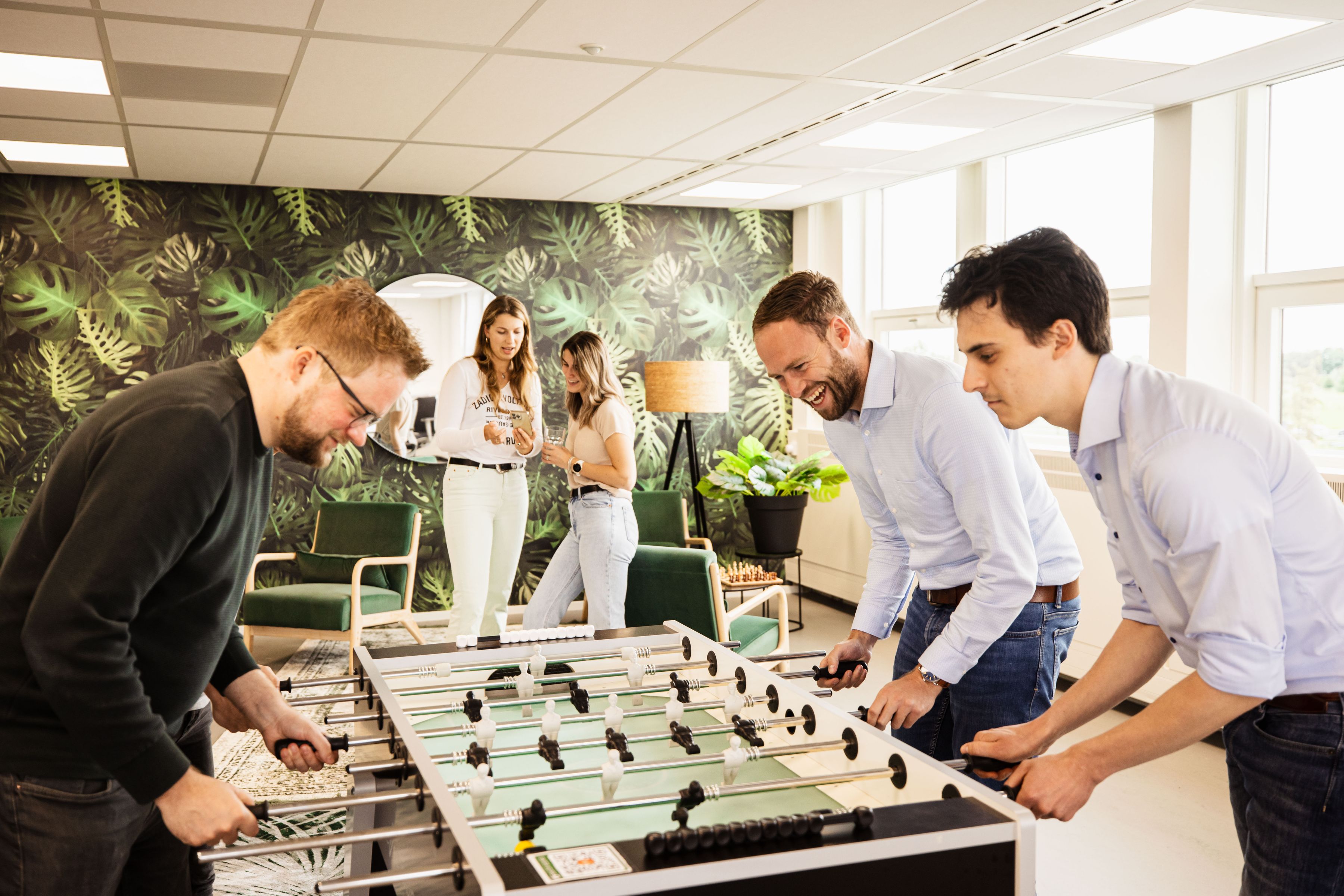
How we decided to get started with our culture
Our unique culture did not go unnoticed. Various consultants from our team have been working for RNW Media for years. This NGO also collaborated with Flock agency. They became so curious about our story that they invited themselves to our office.
We soon concluded that the definition of our culture could help us grow. We decided to start with:
1. Kick-off sessions with stakeholders from all departments
Under the guidance of the Flock agency, stakeholders from different departments came together to outline the big picture and define the assignment. Stimulating sessions in which the challenges of our organisation emerged surprisingly quickly.
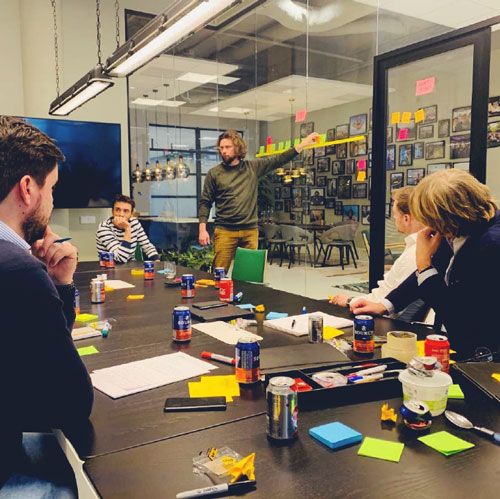
2. Four 'prototype sessions' each consisting of 10-15 people; a representative mix of our colleagues
During each session, the group continued to work with the output of the previous group. We developed a number of expressions (videos, presentations, a game and finally, a diagram) that physically explained our culture. The group presented the results to the entire team that same afternoon, after which interesting discussions arose.
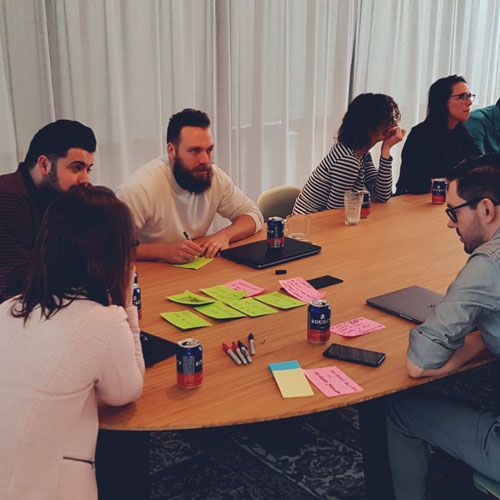
Not everyone seemed to have the same idea about our culture and feel at home in everything. The differences between 'North' and 'South' also turned out to be greater than we thought. The good thing was: we all thought this was great! Our common denominator turned out to be that everyone was okay with differences. Yes, everyone. By following Shared Leadership principles throughout the project, everyone has been involved, and everyone supports the result.
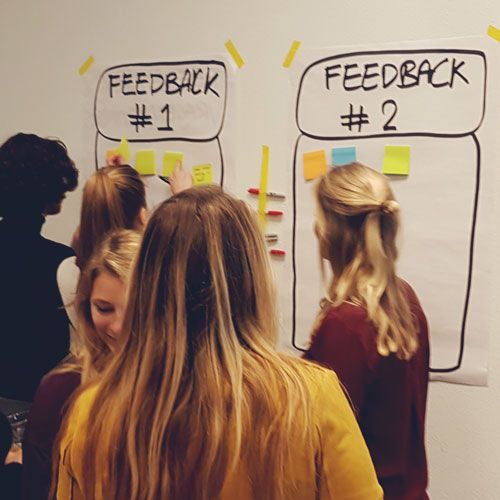
3. A recap with the kick-off group
After the last prototype session, the kick-off group got back together. Together with the Flock agency, we looked back at the process and the results. We also defined the next steps.
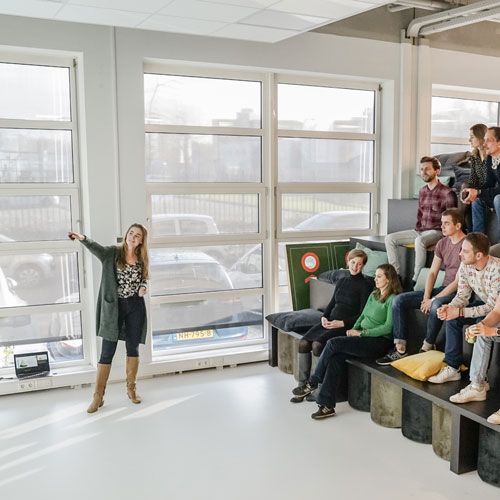
What we discovered about our culture
During the process, we became closer. It was wonderful to see that we all, regardless of our location, age, specialisation or job type, find the same values (together, development, and from data to action) important. But also that there are many differences between us and that the fact that we accept and appreciate that of and about each other is precisely what makes us so unique.
We can be who we are and don't all have to act and think the same. Differences are okay! It is precisely because we are all comfortable being ourselves that we are so good together!
The period after the cultural trajectory
We set to work embedding the culture within our organisation. For example, the culture was fully integrated into our hiring policy, the onboarding of new colleagues, our marketing communication and internal processes.
We are now at the point where preserving our culture is discussed along with every major decision. Do you want to know how we approach this? Or does this story excite you and do you want to work with or for us? We would like to hear from you!
You can also check out our projects at (page) or follow us on LinkedIn or Instagram.
This is an article by Marloes de Bruin, Marketing Manager at Digital Power
Marloes de Bruin is Marketing Manager at Digital Power. She is a strategic, all-round marketer, passionate about data-driven marketing. She writes on a variety of topics using input from our data consultants.
Marketing Managermarloes.debruin@digital-power.com
Receive data insights, use cases and behind-the-scenes peeks once a month?
Sign up for our email list and stay 'up to data':